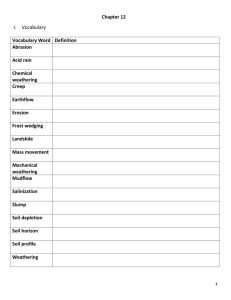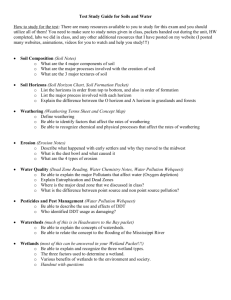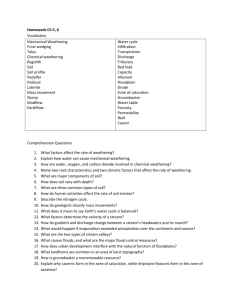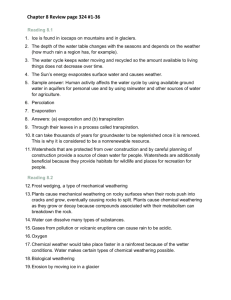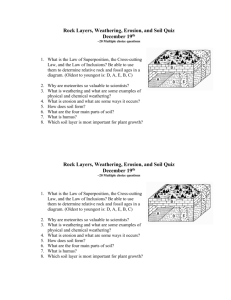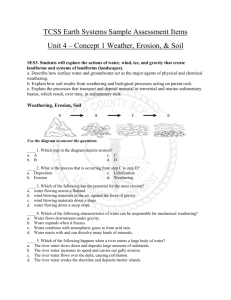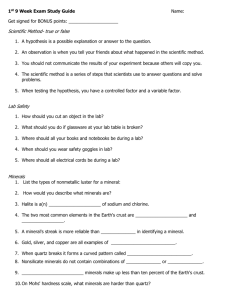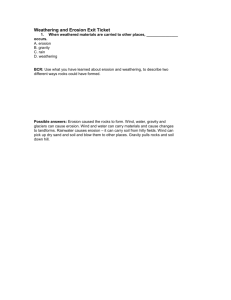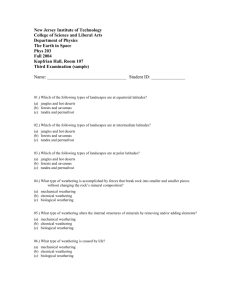Name
advertisement
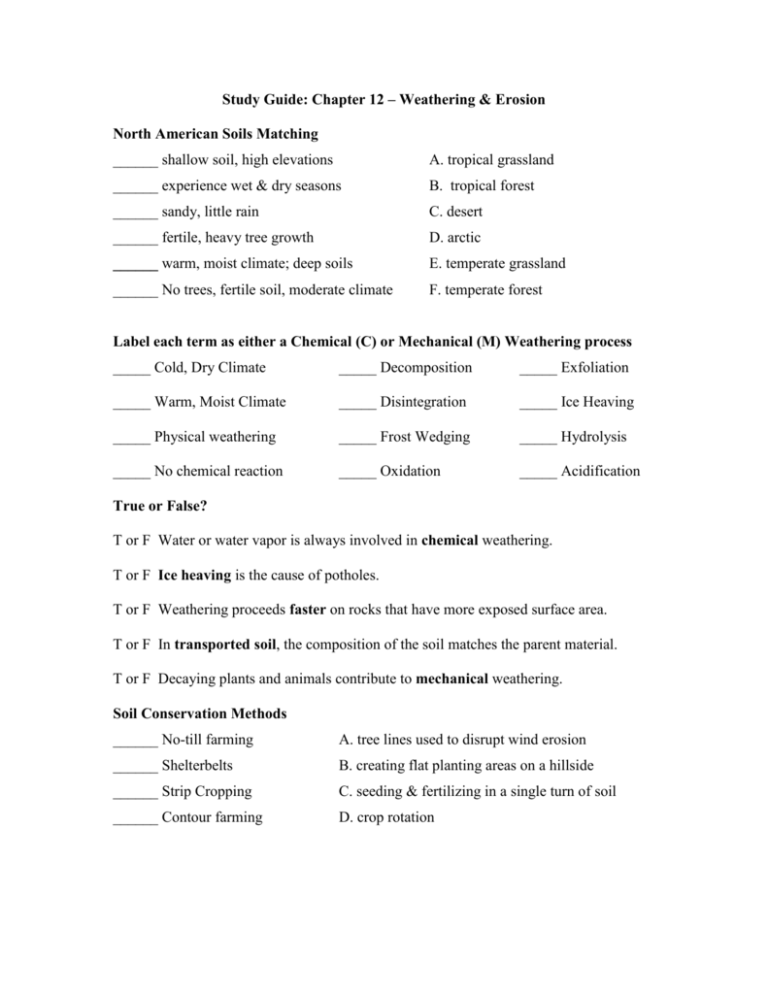
Study Guide: Chapter 12 – Weathering & Erosion North American Soils Matching ______ shallow soil, high elevations A. tropical grassland ______ experience wet & dry seasons B. tropical forest ______ sandy, little rain C. desert ______ fertile, heavy tree growth D. arctic ______ warm, moist climate; deep soils E. temperate grassland ______ No trees, fertile soil, moderate climate F. temperate forest Label each term as either a Chemical (C) or Mechanical (M) Weathering process _____ Cold, Dry Climate _____ Decomposition _____ Exfoliation _____ Warm, Moist Climate _____ Disintegration _____ Ice Heaving _____ Physical weathering _____ Frost Wedging _____ Hydrolysis _____ No chemical reaction _____ Oxidation _____ Acidification True or False? T or F Water or water vapor is always involved in chemical weathering. T or F Ice heaving is the cause of potholes. T or F Weathering proceeds faster on rocks that have more exposed surface area. T or F In transported soil, the composition of the soil matches the parent material. T or F Decaying plants and animals contribute to mechanical weathering. Soil Conservation Methods ______ No-till farming A. tree lines used to disrupt wind erosion ______ Shelterbelts B. creating flat planting areas on a hillside ______ Strip Cropping C. seeding & fertilizing in a single turn of soil ______ Contour farming D. crop rotation Soil Horizon Matching ______ Medium-sized particles A. Horizon A ______ Humus ______ finest particles B. Horizon B ______ topsoil ______ clay C. Horizon C ______ parent material ______ dark color D. Bedrock ______ slightly weathered bedrock Circle or Underline the correct choice What process is responsible for the formation of rust? – acidification, hydrolysis or oxidation Which mineral is the most resistant to weathering? – halite, quartz, or calcite What is the transportation of the earth’s surface materials by wind or water? deposition, erosion, or weathering What gas mixes with condensing water vapor to produce acid rain? – helium, oxygen, or sulfur dioxide What is the slow, imperceptible downhill movement of weathered material? – creep, earthflow, or slump What is dark organic material found in topsoil? – humus, tephra, or talus What is primarily responsible for dissolving limestone & forming large caverns? – abrasion, carbonic acid or hydrolysis What is the break up of rock due to processes at the earth’s surface? – erosion or weathering What is the most common cause of landslides? – rain, volcanoes or wind Oxidation affects minerals containing __________. – calcite, iron, or steel Which mass movement occurs in drier regions that experience infrequent, heavy rainfall? Lahar is an example. – creep, mudflow, or slump What is a cross section of earth exposed by digging? – bedrock, soil profile, or strata Fill in the Blank: abrasion, exfoliation, frost wedging, hydrolysis, oxidation ____________________ occurs when uplifted rock peels away in sheets. Chemical reactions involving water are called ___________________. ____________________ breaks rock as water freezes in the cracks. A chemical reaction involving oxygen is called ____________________. ___________________ occurs as moving rocks scrape against each other. Define soil (2-parts). What are the two main forces of erosion? What is the difference between mechanical and chemical weathering? Compare a residual soil with a transported soil? Describe the four layers of a mature soil profile. Include as much detail as possible.
